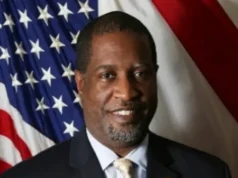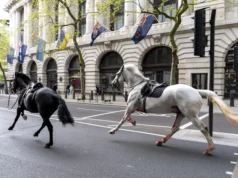
LAURA CASSELS Florida Phoenix
The issues relate to federal court in Washington D.C., and federal court in Tallahassee.
On Tuesday, the powerful Seminole Tribe of Florida filed documents in U.S. District Court in Washington, D.C., to intervene in a lawsuit filed Aug. 16 by Florida pari-mutuel facilities against the U.S. Department of Interior’s decision to approve the tribe’s new, 30-year, multibillion-dollar gambling compact with the State of Florida.
The lawsuit against U.S. Interior Secretary Deb Haaland argues, in part, that the compact approved on Aug. 5 violates the federal Indian Gaming Regulatory Act by allowing the Tribe to conduct gambling – most particularly, mobile sports betting — off tribal lands.
The federal case in Washington was brought by Magic City Casino and Bonita Springs Poker Room, both being pari-mutuel facilities affiliated with West Flagler Associates.
Those same parties filed a case in U.S. District Court in Tallahassee on July 2 against Gov. Ron DeSantis and Department of Business and Professional Regulation Secretary Julie Imanuel Brown. That case demands an injunction to prevent those two from implementing gambling laws adopted in May that allow the Seminole Tribe to unilaterally decide which if any pari-mutuels it will partner with in future sports betting operations off tribal lands.
Florida’s pari-mutuel facilities – places where gambling occurs along with live events such as horse races and jai-alai games – want in on the lucrative sports betting market, too, and they don’t want the Tribe to have a monopoly.
On Aug. 16, the pari-mutuels sued Secretary Haaland, asking the federal court in Washington, D.C., to vacate her approval of the compact.
On Tuesday, the Seminole Tribe intervened on Haaland’s side, arguing that as a federally designated tribe and a sovereign nation, it is an “indispensable party” in the argument but also immune. In other words, it argues that since it an indispensable party but is, due to its sovereignty, barred from participating to defend its interests, the case must be dismissed.
The compact at the heart of the Aug. 16 lawsuit was approved specifically by Bryan Newland, newly appointed to the top post in the Interior Department’s Bureau of Indian Affairs. Technically, Newland declined to affirmatively approve the compact but deliberately allowed it to take effect by default at the end of the requisite 45-day review period.
Newland, then an unconfirmed nominee to his post, wrote extensively that despite allowing the compact to move forward, he had “concerns’ about key provisions of the compact — concerns that likely will be deliberated in future court arguments.
To outright reject the compact — worth $2.5 billion to the State of Florida in just the first five years — may have drawn the ire of the Seminole Tribe, Republican Gov. DeSantis and other powerful interests.
The day after he announced the compact could proceed, Newland was confirmed to his post by the U.S. Senate, with support from both of Florida’s Republican senators, Marco Rubio and Rick Scott.
Florida Phoenix is part of States Newsroom, a network of news bureaus supported by grants and a coalition of donors as a 501c(3) public charity. Florida Phoenix maintains editorial independence. Contact Editor Diane Rado for questions: info@floridaphoenix.com. Follow Florida Phoenix on Facebook and Twitter.
Republished with permission [/vc_message]












